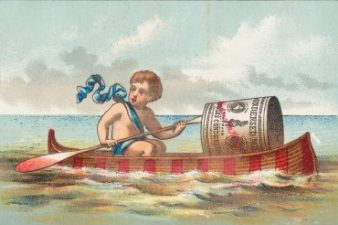 Should Plan B emergency contraception be kept behind locked cabinets or made available on the shelves as recommended by health professionals?
Should Plan B emergency contraception be kept behind locked cabinets or made available on the shelves as recommended by health professionals?
Contraception for those under age 18 is a controversial topic that challenges the conservative morays in the Middle East and, apparently the United States government. In the case of a new ruling by the Obama Administration, health care and human rights advocates appear pitted against those who form public policy. Lost in the fray are under-aged and sexually active individuals who may not get access to medically approved pregnancy prevention pills.
Case in point: condoms are okay to sell on the shelves in the United States, but the morning after pill is not. In a surprise decision and against the advice of the Food and Drug Administration, the contraception in question, Plan B, is being kept locked up behind the pharmacy counter even though it has been approved for sale without a prescription to those over the age of 17. The reason?
“Health and Human Services Secretary Kathleen Sebelius overruled scientists at the Food and Drug Administration who were preparing to let Plan B sell without a prescription to people of any age.” According to the same report, President Obama backed Sebelius’ decision.
Plan-B is manufactured and distributed by Teva Pharmaceuticals, the international pharmaceutical giant headquartered in Israel. It contains a higher dose of Progestin to prevent ovulation and fertilization, and 1.5 mg of levonorgestrel, an ingredient that “has been used in many birth control pills for several decades.”
It does not terminate a pregnancy but prevents a fertilized egg from attaching to the uterine lining. It works best when taken with 24 hours of unprotected sex, but can be used up to three days (72 hours).
Plan B, when used correctly, prevents pregnancy up to 89% of the time.
Read more on the effects of hormones, our health and the environment.
Sexual health advocates are displeased with the decision. Dr. Robert Block of the American Academy of Pediatrics said Sebelius’ decision was “medically inexplicable.”
Other medical professionals who support the availability of Plan B to all ages assert that few sexually active adolescents will be readily able to pay for the pill, which retails for approximately $50.00. Putting the morning after pill next to condoms and spermicides will increase access to contraception for those who are sexually active of all ages, they have contended.
One source reported on a Teva-funded study that tracked 11-17 year olds seeking emergency contraception:
“Nearly 90 percent of them used Plan B safely and correctly without professional guidance, said Teva Vice President Amy Niemann. But Teva wouldn’t say how many of the youngest girls were part of the study,” Yahoo! Health News stated.
Is the pill the most environmentally way to prevent pregnancy?
In an article relating reproductive rights news, it’s important to address the bigger environmental picture. Hormone use to prevent pregnancy revolutionized sexual health, though more recent concerns about the impact on our waterways – prococious puberty and feminized fish are two commonly discussed possible consequences to excess hormone waste – has led to environmentalists advocating for other, greener contraception, a topic we discuss in How Do Treehumpers Prevent Pregnancy?
Read More Ecosexual Health News:
The Ins and Outs of Eco-Friendly Vaginal Lubrication
GM Foods Shrinking Reproductive Health in Womb Near You
Ecosexual Condom ‘Company Love Begins with L’ Empowering Third World Sexual Health
Kinsey Report Finds the Pill isn’t Making Her Feel Sexy




